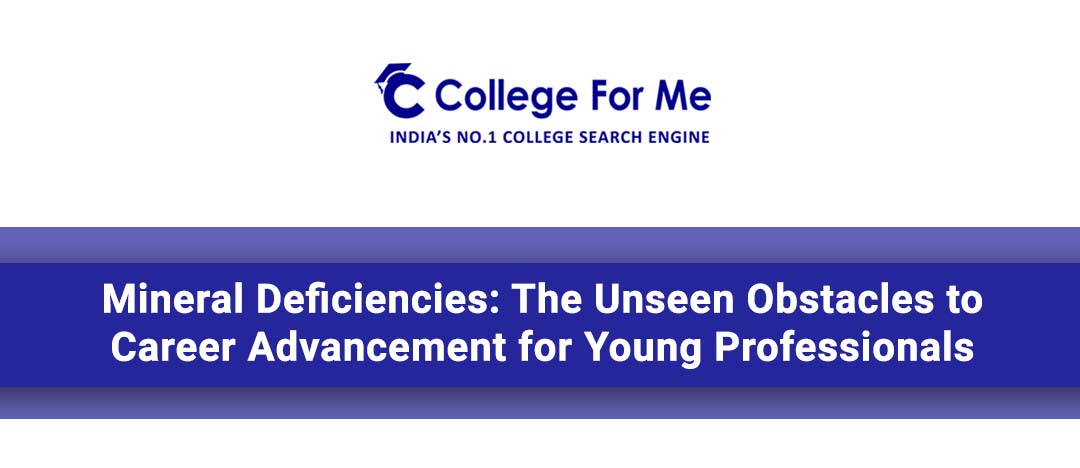Career Scopes Of A B.Tech. Student
There is a high demand for B.Tech. degree holders in the private sector, yet, there is also the opti...

In the competitive world of young professionals striving for career advancement, the focus often centers around skills, networking, and work ethic. However, one critical factor that is frequently overlooked is nutrition, specifically the role of minerals in supporting overall health and professional growth. Mineral deficiencies can be silent obstacles that hinder the career progression of young professionals, impacting physical and mental well-being in ways that are not immediately apparent.
The Impact on Energy and Productivity
Minerals such as iron, magnesium, and potassium are essential for maintaining energy levels and productivity. Young professionals often face demanding work schedules and tight deadlines, and a deficiency in these minerals can lead to persistent fatigue. This fatigue not only reduces the ability to perform at peak levels but can also dampen enthusiasm for career development opportunities.
The Cognitive Connection
Cognitive function is paramount in the professional world, where decision-making, problem-solving, and creative thinking are daily requirements. Zinc, iodine, and selenium are minerals that play vital roles in supporting cognitive abilities. Deficiencies in these minerals can result in reduced mental clarity, difficulties in concentration, and slower response times, which can hinder young professionals from excelling in their roles and stalling career advancement.
The Stress Factor
Work-related stress is a common challenge for young professionals aiming for career growth. Magnesium is a mineral that aids in stress management by regulating the body's stress response. A lack of magnesium can exacerbate stress levels, impairing the ability to cope with workplace pressures effectively. Chronic stress can take a toll on job satisfaction and hinder the pursuit of career opportunities.
Physical Health and Career Attendance
Maintaining good physical health is essential for career advancement. Calcium and vitamin D are minerals that are crucial for bone health, and deficiencies in these minerals can lead to frequent illnesses and slower recovery times. Young professionals with chronic health issues may find themselves taking more sick days, reducing their job attendance, and potentially missing out on career-building experiences.
Addressing Mineral Deficiencies
Recognizing the impact of mineral deficiencies on career advancement is the first step toward addressing these obstacles. Regular health check-ups and blood tests can help identify specific deficiencies. Young professionals should consider incorporating a diverse range of mineral-rich foods into their diets, such as leafy greens, nuts, seeds, and lean meats. In consultation with healthcare professionals, supplementation may be necessary to address specific deficiencies.
In conclusion, while young professionals often focus on honing their skills and networking, they should not underestimate the role of nutrition, particularly minerals, in their career advancement. Mineral deficiencies can undermine energy levels, cognitive function, stress management, and overall health, all of which are essential for career growth. By prioritizing a balanced diet and addressing nutritional gaps, young professionals can pave the way for a healthier, more productive, and ultimately more successful career journey.

There is a high demand for B.Tech. degree holders in the private sector, yet, there is also the opti...

If you are looking for a bright and prospective career, then getting a B.Tech. in CSE must be under ...
Comments (0)